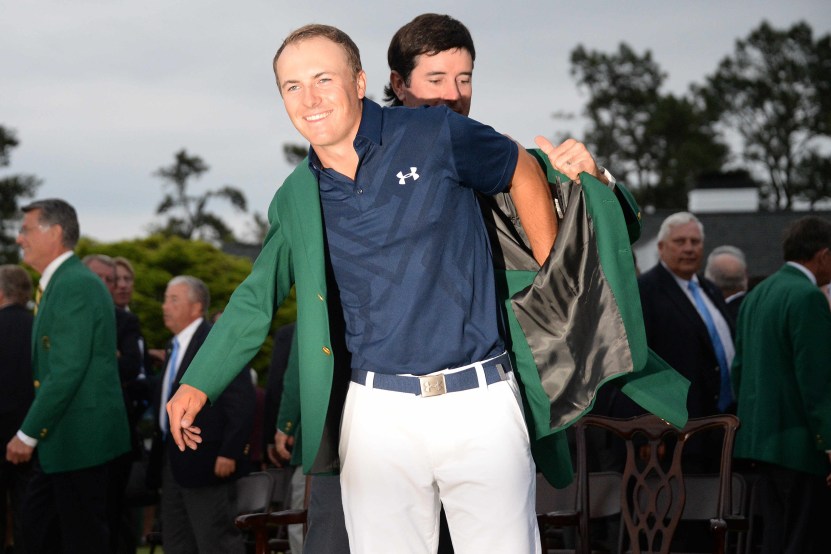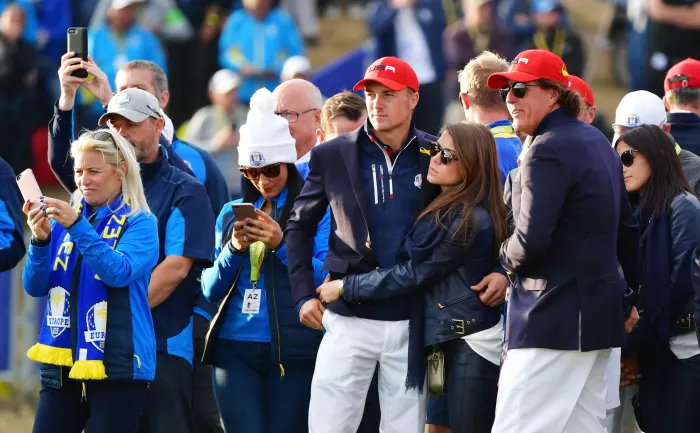His social media loyalists had been calling him “Heir Jordan” long before Sunday’s final round of the Masters – after all, 21-year-old Jordan Spieth represented the kind of American prospect the game hadn’t seen since the emergence of Tiger Woods at the very same tournament in 1997. The title was as much a complimentary catchphrase as it was a promissory one.
Spieth, golf‘s version of the one-and-done (he only played a year at Texas before turning pro), has the kind of talent that sent the sport into a tizzy over the past year. There was talk of what he could do, not yet of what he had done. Like any twentysomething new to the professional ranks, winning his first major may have seemed like clearing a water hazard: close still lands you in the drink. That was the case at the 2014 Masters, when he went into the final day tied with Bubba Watson for the lead, but ended up losing the Green Jacket by three stokes.
At 20, Spieth could have become the youngest Masters champion ever. But the associated pressures were too much at the time. The moment often crushes an individual. But one year later, there was no more talk about Spieth’s potential or prospects. No more salivating over what he could become. By the end of Sunday’s round, when he won his first major and became the second-youngest Masters champion ever, there was no denying Spieth had arrived.
Had he just won the tournament, a disappointing Sunday round from Woods may have stolen the spotlight. But Spieth was dominant, leading wire-to-wire and shooting an 18-under, tying Woods’ 1997 mark for the lowest 72-hole score in the history of the Masters. At one point, Spieth became the first to go 19-under at the tournament. Even as mammoths like Phil Mickelson and Justin Rose pressured him with awe-inspiring shots on the back nine Sunday, Spieth answered with the kind of poise that belied his years. Spieth was bigger than the moment. By doing so, he may have also become bigger than Woods.



